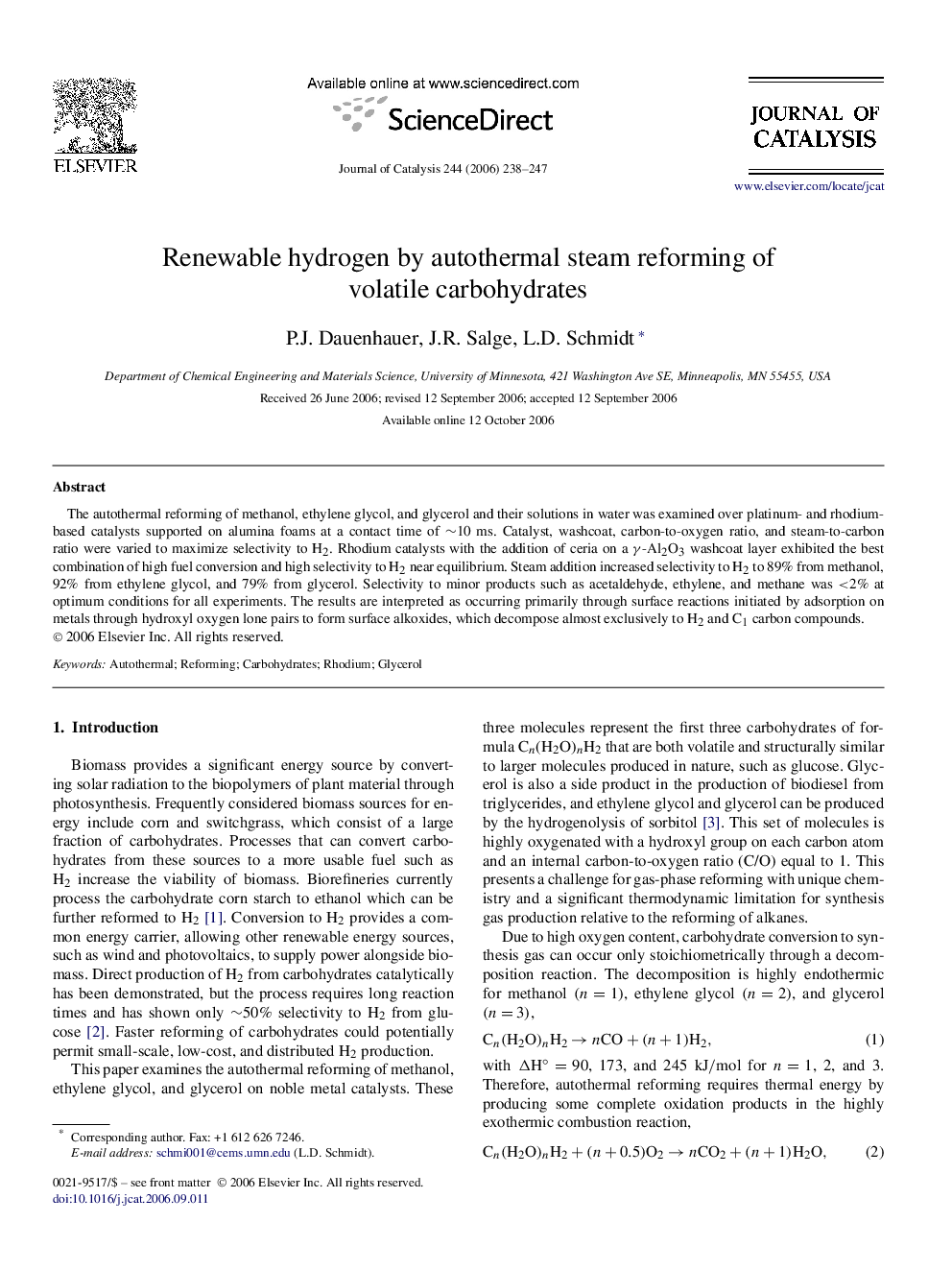| کد مقاله | کد نشریه | سال انتشار | مقاله انگلیسی | نسخه تمام متن |
|---|---|---|---|---|
| 62964 | 47664 | 2006 | 10 صفحه PDF | دانلود رایگان |

The autothermal reforming of methanol, ethylene glycol, and glycerol and their solutions in water was examined over platinum- and rhodium-based catalysts supported on alumina foams at a contact time of ∼10 ms. Catalyst, washcoat, carbon-to-oxygen ratio, and steam-to-carbon ratio were varied to maximize selectivity to H2. Rhodium catalysts with the addition of ceria on a γ-Al2O3 washcoat layer exhibited the best combination of high fuel conversion and high selectivity to H2 near equilibrium. Steam addition increased selectivity to H2 to 89% from methanol, 92% from ethylene glycol, and 79% from glycerol. Selectivity to minor products such as acetaldehyde, ethylene, and methane was <2% at optimum conditions for all experiments. The results are interpreted as occurring primarily through surface reactions initiated by adsorption on metals through hydroxyl oxygen lone pairs to form surface alkoxides, which decompose almost exclusively to H2 and C1 carbon compounds.
Journal: Journal of Catalysis - Volume 244, Issue 2, 10 December 2006, Pages 238–247